『武士道 Bushido 』-新渡戸稲造(Inazo Nitobé)-
Chapter 14
(The Training and Position of Woman 武士道が求めた女性の理想像)
Bushido, the Soul of Japan by Inazo Nitobe
[Book]
[reading]
・Chapter TOP 新渡戸稲造(Inazo Nitobé)TOP
・Chapter 00(Prefaces 序文)
・Chapter 01(Bushido as an Ethical System 武士道とは)
・Chapter 02(Sources of Bushido 武士道の源)
・Chapter 03(Rectitude or Justice 「義」)
・Chapter 04(Courage, the Spirit of Daring and Bearing 「勇」)
・Chapter 05(Benevolence, the Feeling of Distress 「仁」)
・Chapter 06(Politeness 「礼」)
・Chapter 07(Veracity or Truthfulness 「誠」)
・Chapter 08(Honor 「名誉」)
・Chapter 09(The Duty of Loyalty 「忠義」)
・Chapter 10(Education and Training of a Samurai 武士は何を学びどう己を磨いたか)
・Chapter 11(Self-Control 人に勝ち己に勝つために)
・Chapter 12(The Institutions of Suicide and Redress 「切腹」)
・Chapter 13(The Sword, the Soul of the Samurai 「刀」)
・Chapter 14(The Training and Position of Woman 武士道が求めた女性の理想像)
・Chapter 15(The Influence of Bushido 「大和魂」)
・Chapter 16(Is Bushido Still Alive? 武士道は蘇るか)
・Chapter 17(The Future of Bushido 武士道から何を学ぶか)
・[修養]、
・[自警録]
The female half of our species has sometimes been called the paragon of paradoxes, because the intuitive working of its mind is beyond the comprehension of men's "arithmetical understanding." The Chinese ideogram denoting "the mysterious," "the unknowable," consists of two parts, one meaning "young" and the other "woman," because the physical charms and delicate thoughts of the fair sex are above the coarse mental calibre of our sex to explain.
In the Bushido ideal of woman, however, there is little mystery and only a seeming paradox. I have said that it was Amazonian, but that is only half the truth. Ideographically the Chinese represent wife by a woman holding a broom—certainly not to brandish it offensively or defensively against her conjugal ally, neither for witchcraft, but for the more harmless uses for which the besom was first invented—the idea involved being thus not less homely than the etymological derivation of the English wife (weaver) and daughter (duhitar, milkmaid). Without confining the sphere of woman's activity to Küche, Kirche, Kinder, as the present German Kaiser is said to do, the Bushido ideal of womanhood was preeminently domestic. These seeming contradictions—Domesticity and Amazonian traits—are not inconsistent with the Precepts of Knighthood, as we shall see.
Bushido being a teaching primarily intended for the masculine sex, the virtues it prized in woman were naturally far from being distinctly feminine. Winckelmann remarks that "the supreme beauty of Greek art is rather male than female," and Lecky adds that it was true in the moral conception of the Greeks as in their art. Bushido similarly praised those women most "who emancipated themselves from the frailty of their sex and displayed an heroic fortitude worthy of the strongest and the bravest of men."[24] Young girls therefore, were trained to repress their feelings, to indurate their nerves, to manipulate weapons,—especially the long-handled sword called nagi-nata, so as to be able to hold their own against unexpected odds. Yet the primary motive for exercises of this martial character was not for use in the field; it was twofold—personal and domestic. Woman owning no suzerain of her own, formed her own bodyguard. With her weapon she guarded her personal sanctity with as much zeal as her husband did his master's. The domestic utility of her warlike training was in the education of her sons, as we shall see later.
Lecky, History of European Morals II, p. 383.
Fencing and similar exercises, if rarely of practical use, were a wholesome counterbalance to the otherwise sedentary habits of woman. But these exercises were not followed only for hygienic purposes. They could be turned into use in times of need. Girls, when they reached womanhood, were presented with dirks (kai-ken, pocket poniards), which might be directed to the bosom of their assailants, or, if advisable, to their own. The latter was very often the case: and yet I will not judge them severely. Even the Christian conscience with its horror of self-immolation, will not be harsh with them, seeing Pelagia and Domnina, two suicides, were canonized for their purity and piety. When a Japanese Virginia saw her chastity menaced, she did not wait for her father's dagger. Her own weapon lay always in her bosom. It was a disgrace to her not to know the proper way in which she had to perpetrate self-destruction. For example, little as she was taught in anatomy, she must know the exact spot to cut in her throat: she must know how to tie her lower limbs together with a belt so that, whatever the agonies of death might be, her corpse be found in utmost modesty with the limbs properly composed. Is not a caution like this worthy of the Christian Perpetua or the Vestal Cornelia? I would not put such an abrupt interrogation, were it not for a misconception, based on our bathing customs and other trifles, that chastity is unknown among us. On the contrary, chastity was a pre-eminent virtue of the samurai woman, held above life itself. A young woman, taken prisoner, seeing herself in danger of violence at the hands of the rough soldiery, says she will obey their pleasure, provided she be first allowed to write a line to her sisters, whom war has dispersed in every direction. When the epistle is finished, off she runs to the nearest well and saves her honor by drowning. The letter she leaves behind ends with these verses;—
"For fear lest clouds may dim her light,
Should she but graze this nether sphere,
The young moon poised above the height
Doth hastily betake to flight."
For a very sensible explanation of nudity and bathing see Finck's Lotos Time in Japan, pp. 286-297.
It would be unfair to give my readers an idea that masculinity alone was our highest ideal for woman. Far from it! Accomplishments and the gentler graces of life were required of them. Music, dancing and literature were not neglected. Some of the finest verses in our literature were expressions of feminine sentiments; in fact, women played an important role in the history of Japanese belles lettres. Dancing was taught (I am speaking of samurai girls and not of geisha) only to smooth the angularity of their movements. Music was to regale the weary hours of their fathers and husbands; hence it was not for the technique, the art as such, that music was learned; for the ultimate object was purification of heart, since it was said that no harmony of sound is attainable without the player's heart being in harmony with herself. Here again we see the same idea prevailing which we notice in the training of youths—that accomplishments were ever kept subservient to moral worth. Just enough of music and dancing to add grace and brightness to life, but never to foster vanity and extravagance. I sympathize with the Persian prince, who, when taken into a ball-room in London and asked to take part in the merriment, bluntly remarked that in his country they provided a particular set of girls to do that kind of business for them.
The accomplishments of our women were not acquired for show or social ascendency. They were a home diversion; and if they shone in social parties, it was as the attributes of a hostess,—in other words, as a part of the household contrivance for hospitality. Domesticity guided their education. It may be said that the accomplishments of the women of Old Japan, be they martial or pacific in character, were mainly intended for the home; and, however far they might roam, they never lost sight of the hearth as the center. It was to maintain its honor and integrity that they slaved, drudged and gave up their lives. Night and day, in tones at once firm and tender, brave and plaintive, they sang to their little nests. As daughter, woman sacrificed herself for her father, as wife for her husband, and as mother for her son. Thus from earliest youth she was taught to deny herself. Her life was not one of independence, but of dependent service. Man's helpmeet, if her presence is helpful she stays on the stage with him: if it hinders his work, she retires behind the curtain. Not infrequently does it happen that a youth becomes enamored of a maiden who returns his love with equal ardor, but, when she realizes his interest in her makes him forgetful of his duties, disfigures her person that her attractions may cease. Adzuma, the ideal wife in the minds of samurai girls, finds herself loved by a man who, in order to win her affection, conspires against her husband. Upon pretence of joining in the guilty plot, she manages in the dark to take her husband's place, and the sword of the lover assassin descends upon her own devoted head.
The following epistle written by the wife of a young daimio, before taking her own life, needs no comment:—"Oft have I heard that no accident or chance ever mars the march of events here below, and that all moves in accordance with a plan. To take shelter under a common bough or a drink of the same river, is alike ordained from ages prior to our birth. Since we were joined in ties of eternal wedlock, now two short years ago, my heart hath followed thee, even as its shadow followeth an object, inseparably bound heart to heart, loving and being loved. Learning but recently, however, that the coming battle is to be the last of thy labor and life, take the farewell greeting of thy loving partner. I have heard that Kō-u, the mighty warrior of ancient China, lost a battle, loth to part with his favorite Gu. Yoshinaka, too, brave as he was, brought disaster to his cause, too weak to bid prompt farewell to his wife. Why should I, to whom earth no longer offers hope or joy—why should I detain thee or thy thoughts by living? Why should I not, rather, await thee on the road which all mortal kind must sometime tread? Never, prithee, never forget the many benefits which our good master Hideyori hath heaped upon thee. The gratitude we owe him is as deep as the sea and as high as the hills."
Woman's surrender of herself to the good of her husband, home and family, was as willing and honorable as the man's self-surrender to the good of his lord and country. Self-renunciation, without which no life-enigma can be solved, was the keynote of the Loyalty of man as well as of the Domesticity of woman. She was no more the slave of man than was her husband of his liege-lord, and the part she played was recognized as Naijo, "the inner help." In the ascending scale of service stood woman, who annihilated herself for man, that he might annihilate himself for the master, that he in turn might obey heaven. I know the weakness of this teaching and that the superiority of Christianity is nowhere more manifest than here, in that it requires of each and every living soul direct responsibility to its Creator. Nevertheless, as far as the doctrine of service—the serving of a cause higher than one's own self, even at the sacrifice of one's individuality; I say the doctrine of service, which is the greatest that Christ preached and is the sacred keynote of his mission—as far as that is concerned, Bushido is based on eternal truth.
My readers will not accuse me of undue prejudice in favor of slavish surrender of volition. I accept in a large measure the view advanced with breadth of learning and defended with profundity of thought by Hegel, that history is the unfolding and realization of freedom. The point I wish to make is that the whole teaching of Bushido was so thoroughly imbued with the spirit of self-sacrifice, that it was required not only of woman but of man. Hence, until the influence of its Precepts is entirely done away with, our society will not realize the view rashly expressed by an American exponent of woman's rights, who exclaimed, "May all the daughters of Japan rise in revolt against ancient customs!" Can such a revolt succeed? Will it improve the female status? Will the rights they gain by such a summary process repay the loss of that sweetness of disposition, that gentleness of manner, which are their present heritage? Was not the loss of domesticity on the part of Roman matrons followed by moral corruption too gross to mention? Can the American reformer assure us that a revolt of our daughters is the true course for their historical development to take? These are grave questions. Changes must and will come without revolts! In the meantime let us see whether the status of the fair sex under the Bushido regimen was really so bad as to justify a revolt.
We hear much of the outward respect European knights paid to "God and the ladies,"—the incongruity of the two terms making Gibbon blush; we are also told by Hallam that the morality of Chivalry was coarse, that gallantry implied illicit love. The effect of Chivalry on the weaker vessel was food for reflection on the part of philosophers, M. Guizot contending that Feudalism and Chivalry wrought wholesome influences, while Mr. Spencer tells us that in a militant society (and what is feudal society if not militant?) the position of woman is necessarily low, improving only as society becomes more industrial. Now is M. Guizot's theory true of Japan, or is Mr. Spencer's? In reply I might aver that both are right. The military class in Japan was restricted to the samurai, comprising nearly 2,000,000 souls. Above them were the military nobles, the daimio, and the court nobles, the kugé—these higher, sybaritical nobles being fighters only in name. Below them were masses of the common people—mechanics, tradesmen, and peasants—whose life was devoted to arts of peace. Thus what Herbert Spencer gives as the characteristics of a militant type of society may be said to have been exclusively confined to the samurai class, while those of the industrial type were applicable to the classes above and below it. This is well illustrated by the position of woman; for in no class did she experience less freedom than among the samurai. Strange to say, the lower the social class—as, for instance, among small artisans—the more equal was the position of husband and wife. Among the higher nobility, too, the difference in the relations of the sexes was less marked, chiefly because there were few occasions to bring the differences of sex into prominence, the leisurely nobleman having become literally effeminate. Thus Spencer's dictum was fully exemplified in Old Japan. As to Guizot's, those who read his presentation of a feudal community will remember that he had the higher nobility especially under consideration, so that his generalization applies to the daimio and the kugé.
I shall be guilty of gross injustice to historical truth if my words give one a very low opinion of the status of woman under Bushido. I do not hesitate to state that she was not treated as man's equal; but until we learn to discriminate between difference and inequalities, there will always be misunderstandings upon this subject.
When we think in how few respects men are equal among themselves, e.g., before law courts or voting polls, it seems idle to trouble ourselves with a discussion on the equality of sexes. When, the American Declaration of Independence said that all men were created equal, it had no reference to their mental or physical gifts: it simply repeated what Ulpian long ago announced, that before the law all men are equal. Legal rights were in this case the measure of their equality. Were the law the only scale by which to measure the position of woman in a community, it would be as easy to tell where she stands as to give her avoirdupois in pounds and ounces. But the question is: Is there a correct standard in comparing the relative social position of the sexes? Is it right, is it enough, to compare woman's status to man's as the value of silver is compared with that of gold, and give the ratio numerically? Such a method of calculation excludes from consideration the most important kind of value which a human being possesses; namely, the intrinsic. In view of the manifold variety of requisites for making each sex fulfil its earthly mission, the standard to be adopted in measuring its relative position must be of a composite character; or, to borrow from economic language, it must be a multiple standard. Bushido had a standard of its own and it was binomial. It tried to guage the value of woman on the battle-field and by the hearth. There she counted for very little; here for all. The treatment accorded her corresponded to this double measurement;—as a social-political unit not much, while as wife and mother she received highest respect and deepest affection. Why among so military a nation as the Romans, were their matrons so highly venerated? Was it not because they were matrona, mothers? Not as fighters or law-givers, but as their mothers did men bow before them. So with us. While fathers and husbands were absent in field or camp, the government of the household was left entirely in the hands of mothers and wives. The education of the young, even their defence, was entrusted to them. The warlike exercises of women, of which I have spoken, were primarily to enable them intelligently to direct and follow the education of their children.
I have noticed a rather superficial notion prevailing among half-informed foreigners, that because the common Japanese expression for one's wife is "my rustic wife" and the like, she is despised and held in little esteem. When it is told that such phrases as "my foolish father," "my swinish son," "my awkward self," etc., are in current use, is not the answer clear enough?
To me it seems that our idea of marital union goes in some ways further than the so-called Christian. "Man and woman shall be one flesh." The individualism of the Anglo-Saxon cannot let go of the idea that husband and wife are two persons;—hence when they disagree, their separate rights are recognized, and when they agree, they exhaust their vocabulary in all sorts of silly pet-names and—nonsensical blandishments. It sounds highly irrational to our ears, when a husband or wife speaks to a third party of his other half—better or worse—as being lovely, bright, kind, and what not. Is it good taste to speak of one's self as "my bright self," "my lovely disposition," and so forth? We think praising one's own wife or one's own husband is praising a part of one's own self, and self-praise is regarded, to say the least, as bad taste among us,—and I hope, among Christian nations too! I have diverged at some length because the polite debasement of one's consort was a usage most in vogue among the samurai.
The Teutonic races beginning their tribal life with a superstitious awe of the fair sex (though this is really wearing off in Germany!), and the Americans beginning their social life under the painful consciousness of the numerical insufficiency of women (who, now increasing, are, I am afraid, fast losing the prestige their colonial mothers enjoyed), the respect man pays to woman has in Western civilization become the chief standard of morality. But in the martial ethics of Bushido, the main water-shed dividing the good and the bad was sought elsewhere. It was located along the line of duty which bound man to his own divine soul and then to other souls, in the five relations I have mentioned in the early part of this paper. Of these we have brought to our reader's notice, Loyalty, the relation between one man as vassal and another as lord. Upon the rest, I have only dwelt incidentally as occasion presented itself; because they were not peculiar to Bushido. Being founded on natural affections, they could but be common to all mankind, though in some particulars they may have been accentuated by conditions which its teachings induced. In this connection, there comes before me the peculiar strength and tenderness of friendship between man and man, which often added to the bond of brotherhood a romantic attachment doubtless intensified by the separation of the sexes in youth,—a separation which denied to affection the natural channel open to it in Western chivalry or in the free intercourse of Anglo-Saxon lands. I might fill pages with Japanese versions of the story of Damon and Pythias or Achilles and Patroclos, or tell in Bushido parlance of ties as sympathetic as those which bound David and Jonathan.
I refer to those days when girls were imported from England and given in marriage for so many pounds of tobacco, etc.
It is not surprising, however, that the virtues and teachings unique in the Precepts of Knighthood did not remain circumscribed to the military class. This makes us hasten to the consideration of
Read文献、
book文献
TOP
日本の魂ー日本思想の解明ー
日本的思考の根源を見る。
”忠義”は追従ではない。”名誉”は求める心である。
(第三章 義-あるいは正義について)
サムライにとって、 卑怯な行動や不正な行動ほど恥ずべきものはない。
(第九章 忠義)
武士道は、われわれの良心を主君の奴隷となすべきことを要求しなかった
(第十章 武士の教育)
武士道は経済とは正反対のものである。それは貧しさを誇る。
(第十一章 克己)
心の奥底の思いや感情—特に宗教的なもの—を雄弁に述べ立てることは、日本人の間では、それは深遠でもなく、 誠実でもないことの疑いないしるしだと受け取られた。
(第十四章 女性の教育と地位)
妻がその夫、家庭そして家族のために身を捨てることは、男が主君と国のために身を捨てるのと同様、自発的かつみごとになされた。
|
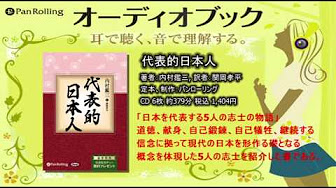

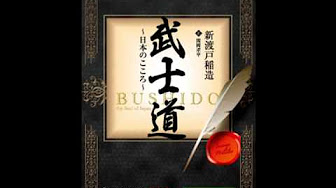


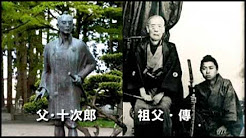

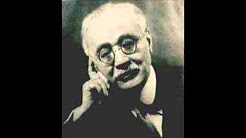



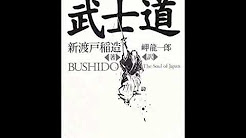
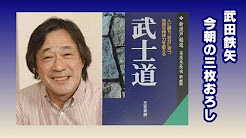
・新渡戸稲造
第1弾「世界を結ぶ『志』~新渡戸稲造の生涯~」、
第2弾「未来につながる『道』~新渡戸稲造の武士道~」、
第3弾「すべてに根ざす『愛』~新渡戸稲造の苦悩~」、
・ 新渡戸稲造の至極の名言集
・「新渡戸稲造の名言」20話
| |
・Bushido: The Soul of Japan by Inazo Nito(1-18)
・Bushido: The Soul of Japan by Inazo Nitobe(1-18)
・武士道「BUSHIDO」Japanese Ver.
・≪AI朗読≫武士道
・【武田鉄矢】『武士道』完全版
|
Bushido, the Soul of Japan
『武士道は定式化されたものではないが、昔もそして今も、日本人を鼓舞し、わが国を動かす原動力なのである』
日本人が日本人たりえる所以。
国家としての歴史的哲学体系を持たない日本の、現代社会においても尚、我々の血肉となり、在り続ける道徳律の根幹は「武士道」にあり。
日本人 新渡戸稲造博士が世界に発信した日本人論。
世代と国境を越え今なお読み継がれている世界的ベストセラー。
西洋・東洋の文化・哲学・思想と照らし合わせながら、その特異性と唯一無二の行動規範・心の拠り所を詳細に解説した普遍の書が、完全現代語訳、プロフェッショナルのナレーションで今蘇る。
21世紀。世界第三位の経済大国であるわが国日本。
政治的にも文化的にもより身近に世界と対峙する現代においてこそ、われわれの心の中に脈々と流れ続ける、日本人が日本人足らしめる「武士道」の精神を紐解く時なのではないだろうか。
本書は1世紀の時を超えた今も尚色褪せること無く、むしろその博識と見解、交える事例とそのユーモアに溢れた表現により現代人の我々にも実に痛快に日本の心「武士道」を理解させてくれる。
「武士道」がいつどのようにして始まったのか、それはどんな特徴を持ち、どのようなことを教えようとしているのか、武士以外の一般民衆にどのような影響を与えたのか、その影響がどれほど永く続いているか。
様々な角度・キーワードで武士の心得、さむらいの心の在り方をリレー形式で綴っている。
世界有数の犯罪率の低さ、大災害時での規律、自発的な他助の精神と行動は時代を超えて、親から子へと語り継がれてきた「道徳律」が存在し続けていることを如実に表している。
知っているようで知らない「日本の心」が、ここに明かされている。
内容抜粋
「今何とおっしゃいましたか?」と敬愛する教授は尋ねた。
「日本の学校には宗教の教育がないということでしょうか?」
そうですと答えると、教授は驚いて足を止めた。そして、今でも耳から離れない声音で、重ねてこう聞いた。
「宗教がない! だとしたら、いったいどうやって道徳を教えるんですか?」
この質問に私は意表を突かれ、とっさに答えを返すことができなかった。というのも、子どもの頃私が学んだ道徳というのは、学校で教わったものではなかったからである。私は、自分の持っている善悪正邪の概念を作り上げているさまざまな要素をひとつひとつ分析してみて、ようやく、それらを私の中に植えつけたのは「武士道」であったことに気づいた。
武士道とは、武士が守るよう求められる、もしくは、そう教えられる道徳的な作法である。文字に書かれたものはなく、せいぜい口伝えで伝えられた格言や、有名な武士や学者が書いたものが残されている程度である。
多くの場合そうしたものさえなく、しかしだからこそかえって深く心に刻まれ、守るべき掟<<おきて>>として強い拘束力を持っていた。ひとりの優秀な頭脳が考え出したものでもなければ、ひとりの高名な人物の生きかたが手本となってできたものでもない。数十年、数百年に及ぶ武士の歴史の中で自然に醸成されたものである。
「義は、道理に従ってためらうことなく、何をなすべきかを決断する力である。死ぬべきときは死を選び、討つべきときには討つことを選ぶ力である」
「戦いの真っただ中に飛び込んで討ち死にするのはいともたやすいことで、身分の卑しい者にもできる。生きるべきときは生き、死ぬべきときにのみ死ぬのが本当の勇気である」
「義に過ぎれば固くなる。仁に過ぎれば弱くなる」
「礼法の要点は精神を養うことにある。礼をもって静かに座っていれば、どんな乱暴者でも危害を加える気になれないほどに」
仁愛や謙譲の精神から生まれた礼儀は、他人に対する思いやりから生まれて、人への同情心を品よく優雅に表現するものだからである。
「心だに誠の道にかないなば祈らずとても神や守らん」
「忠ならんと欲すれば孝ならず、孝ならんと欲すれば忠ならず」
命は主君に仕えるための手段だと考えらえており、その理想形は、名誉のために命を捨てることであった。
「おのれの魂という畑が、優しい心で揺れ動くのを感ずるか? まかれた種が芽吹こうとしているのだ。言葉でそれを妨げてはならぬ。静かに、ひそやかに、自ら芽吹くのを見守っているのだ」
「死を軽<<かろ>>んずることは勇気のいる行為である。しかし、生きることが死よりもつらいときに、あえて生きることこそが本物の勇気である」
「かくすればかくなるものと知りながら やむにやまれぬ大和魂」
目次
訳者序文
初版への序文
改訂第10版への序文
新渡戸博士の『武士道』に寄せて
第1章 道徳体系としての「武士道」
第2章 武士道の源
第3章 「義」――あるいは正義について
第4章 「勇」――勇敢さと忍耐力
第5章 「仁」――慈愛の心
第6章 「礼」
第7章 「誠」――正直さと誠実さ
第8章 「誉<<ほまれ>>」――あるいは名誉について
第9章 「忠義」
第10章 武士の教育と鍛錬
第11章 自制心
第12章 切腹と敵討ちという制度
第13章 刀――武士の魂
第14章 女性の教育と地位
第15章 武士道から大和魂へ
第16章 武士道は今も生きているか
第17章 武士道のこれから
新渡戸稲造(Inazo Nitobe)
文久2年(1862年)、藩士 新渡戸十次郎の三男として南部藩(今の岩手県)に生まれる。
幼少期より東京英語学校に学び、少年期は、後に「代表的日本人」の著者でもある内村鑑三らとともに札幌農学校へ入学し学業を磨いた。
明治維新後はアメリカ・ドイツに渡り農政学を始め様々な研究に従事。
台湾総督府技師として台湾の殖産に携わり功績を挙げる。
国際連盟事務次長としても国際的に活躍。帰国後は様々な学校の教職を歴任した後、東京女子大学初代学長にもなる。
本書「武士道」は英語のみならずポーランド、ドイツ、ノルウェー、スペイン、ロシア、イタリアなど、主として欧米の多様な国の言語に翻訳され世界的ベストセラーとなる。旧五千円札の肖像画の人物としても有名。
TOP

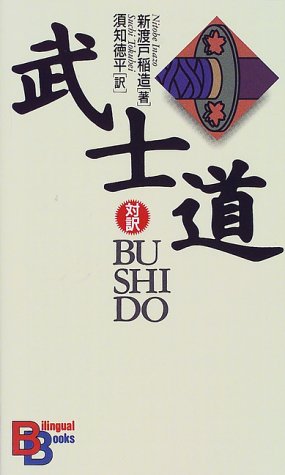

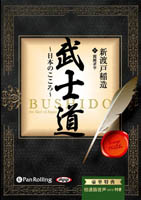 朗読,Read 朗読,Read
|
















 朗読,Read
朗読,Read
















 朗読,Read
朗読,Read